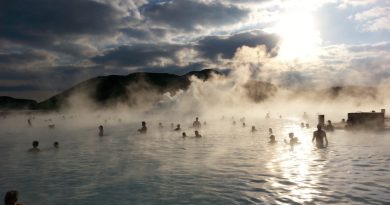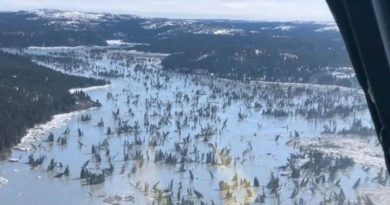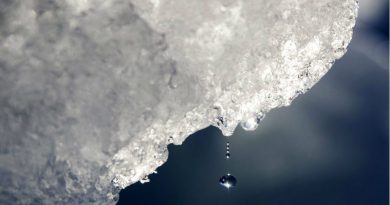Climate change accelerating despite pledges to “build back better” during pandemic, report
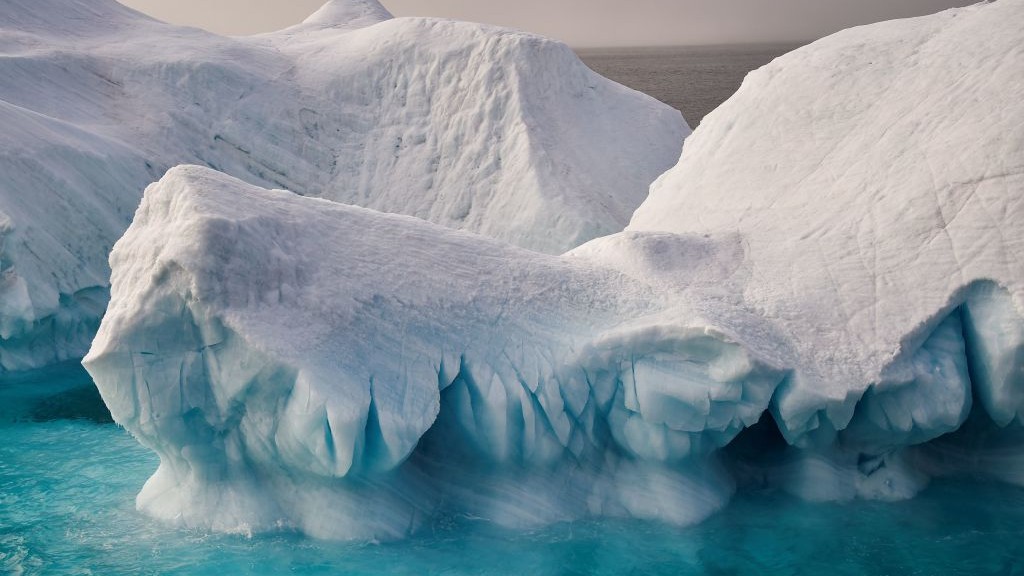
A report organized by the World Meteorological Organization (WMO) paints a concerning picture of accelerating climate impacts and increasing emissions, despite COVID-19 slow downs around the world.
“Throughout the pandemic we have heard that we must build back better to set humanity on a more sustainable path and to avoid the worst impacts of climate change on society and economies,” WMO Secretary-General Prof. Petteri Taalas said in a news release.
“This report shows that so far in 2021 we are not going in the right direction.”
The United in Science 2021 report is put together to compile the most recent science on climate.
It’s coordinated by the WMO and is contributed to by the UN Environment Programme (UNEP), the World Health Organization (WHO), the Intergovernmental Panel on Climate Change (IPCC), the Global Carbon Project (GCP), the World Climate Research Programme (WCRP) and the Met Office in the United Kingdom.
The WMO says carbon dioxide emissions “rapidly recovered’ after the initial pandemic shutdowns and that greenhouse gas concentrations are at “record levels.”
“Rising global temperatures are fuelling devastating extreme weather throughout the world, with spiralling impacts on economies and societies,” the WMO said.
“Billions of work hours have been lost through heat alone. The average global temperature for the past five years was among the highest on record. There is an increasing likelihood that temperatures will temporarily breach the threshold of 1.5° Celsius above the pre-industrial era, in the next five years.”
Canada among hard hit areas
Canada was also singled out in the report for the heatwave that struck the West of the country this year, along with the northwest U.S.
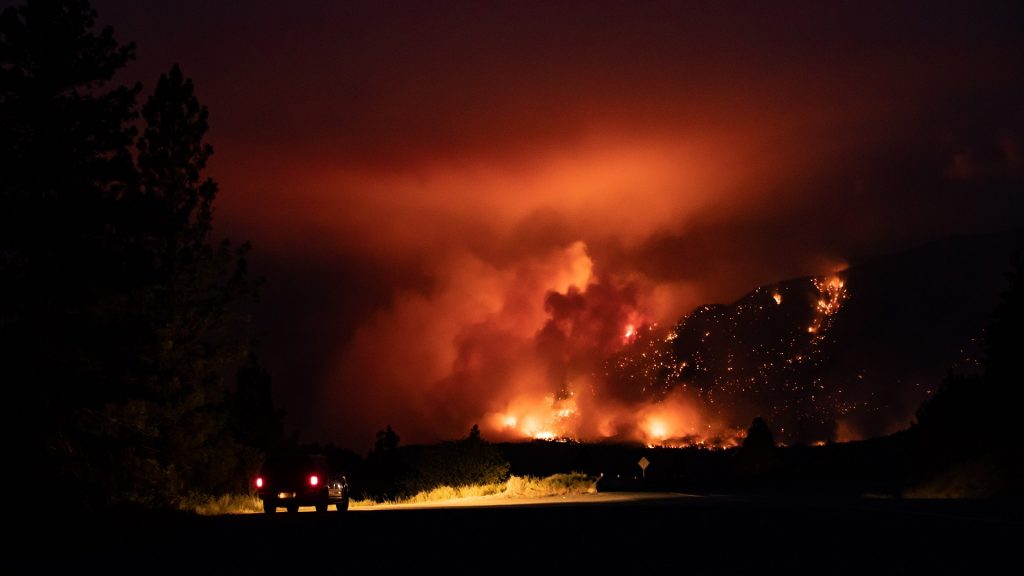
In Canada, the village of Lytton posted the Canadian heat record of 49.6 C on June 29, 2021.
“The World Weather Attribution (WWA) initiative investigated the role of human-induced climate change in the likelihood and intensity of this extreme heatwave,” the report says. “The occurrence of a heatwave with the high maximum daily temperatures observed in the area 45–52 ºN, 119–123 ºW, was virtually impossible without human-caused climate change.”
Arctic sea ice continues to shrink
September 2020 also saw the second lowest Arctic sea-ice extent on record, the report says.
Greenhouse gas concentrations – which are already at their highest levels in three million years – have continued to rise, reaching new record highs this year,” Taalas said.
“Fossil fuel emissions in many sectors are back at the same or at even higher levels than before the pandemic. Global temperatures in 2017–2021 are among the warmest of any equivalent period since meteorological measurements, with warming evident in many climate indicators such as sea ice, glacier melt and sea-level rise.”

In addition, the maximum winter, and minimum summer, sea-ice extent were below the 1981-2010 average in every year from 2017-2021.
“There has also been a marked decline in the fraction of older, usually thicker, ice,” the report says. “At the time of the March maximum, the fraction of ice older than one year has declined from around 60% in 1985 to around 27% in 2021. The fraction of ice older than four years has declined from 30% in 1985 to less than 5% in 2021.
In the report’s forward, UN Secretary-General Antonio Guterres urged the international community to recommit to realizing the goals of the Paris climate accord.
“We are still significantly off-schedule to meet the goals of the Paris Agreement,” he said.
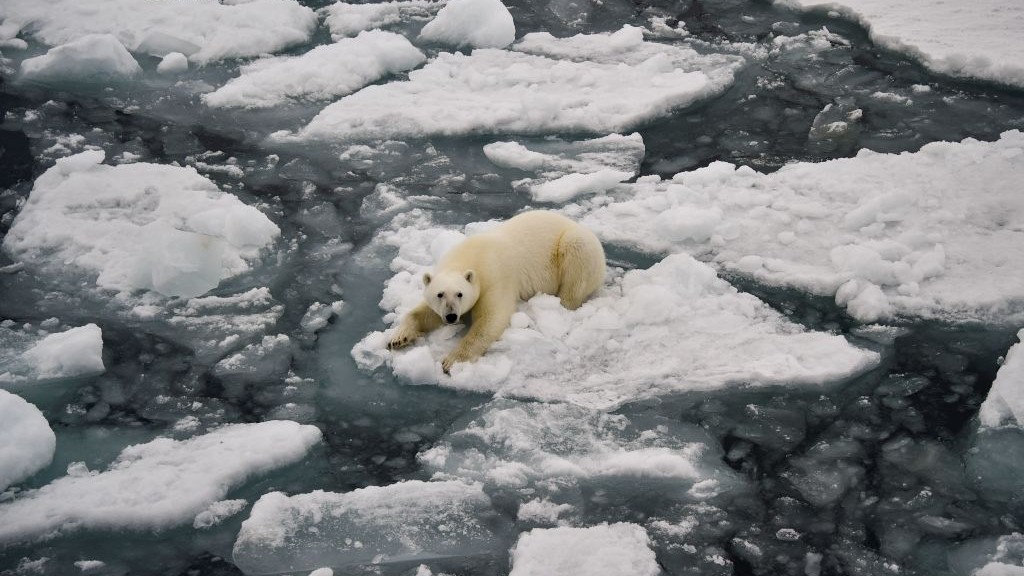
“This year has seen fossil fuel emissions bounce back, greenhouse gas concentrations continuing to rise and severe human-enhanced weather events that have affected health, lives and livelihoods on every continent,” Guterres said.
“Unless there are immediate, rapid and large-scale reductions in greenhouse gas emissions, limiting warming to 1.5°C will be impossible, with catastrophic consequences for people and the planet on which we depend.”
Write to Eilís Quinn at eilis.quinn(at)cbc.ca
Related stories from around the North:
Finland: Finland’s July temperatures in Lapland one to three degrees above average, Yle News
Greenland: UN sounds clarion call over ‘irreversible’ climate impacts by humans, Thomson Reuters
Norway: Polar bears may be inbreeding as climate change melts away Arctic ice, The Independent Barents Observer
Russia: Extreme fire activity continues in Yakutia, Russia, Eye on the Arctic
United States: UN climate report confirms what’s been witnessed in Inuit Nanaat for decades, says int’l Inuit org, Eye on the Arctic

